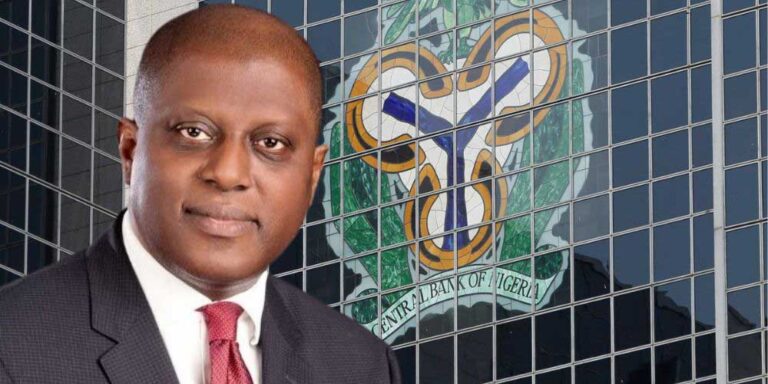The Central Bank of Nigeria (CBN) recorded a steep drop in income from its overdraft arrangement with the Federal Government, earning just N3.1 billion in 2024, a dramatic fall from N1.6 trillion the previous year.
This income stems from the Ways and Means facility—an emergency overdraft extended by the CBN to the government during fiscal shortfalls. The earnings were listed under “loans and receivables” in the apex bank’s newly released audited financial report.
According to the CBN, the interest charged on the overdraft is calculated using the Monetary Policy Rate (MPR) plus three percent.
The 99.8% year-over-year decrease in earnings reflects a significant policy shift, with the CBN tightening its control over this once-frequent borrowing mechanism. The sharp reduction follows the conversion of N22.7 trillion in existing overdrafts into 40-year bonds in 2023—a move approved by the National Assembly to reduce inflationary risks and clean up the CBN’s books. These bonds include a three-year repayment grace period.
Finance Minister and Coordinating Minister of the Economy, Mr. Wale Edun, announced in June 2024 that the government had already repaid N7.3 trillion of the securitized debt and ceased its reliance on the overdraft system. He affirmed that all federal expenditures now follow a more transparent and accountable funding model.
CBN Governor Mr. Olayemi Cardoso also assured lawmakers that the bank would no longer offer new overdrafts to the Federal Government until all outstanding obligations are fully settled.
The Ways and Means Advances are meant to serve as short-term fiscal support tools, legally capped and regulated under Section 38 of the CBN Act, 2007, which allows temporary advances to the government in times of revenue gaps.
However, the use of this facility has sparked significant controversy over the years. In 2023, public scrutiny intensified over claims that former CBN Governor Godwin Emefiele approved the printing of N22.7 trillion without prior approval from the National Assembly during the Buhari administration—raising alarm over constitutional breaches and transparency issues.
Critics argue that the overdraft system has compromised the integrity of monetary policy, increased inflationary pressure, and muddled the line between the central bank’s fiscal and monetary roles.
Further, a 2021 report from the Office of the Auditor-General of the Federation raised red flags over N2.73 trillion in questionable interest payments, alleging that the CBN treated the overdraft as a loan for its own benefit without appropriate records or transparency.
The new direction suggests a turning point in Nigeria’s fiscal discipline, aiming for stronger financial governance and a clear distinction between monetary support and fiscal responsibility.

